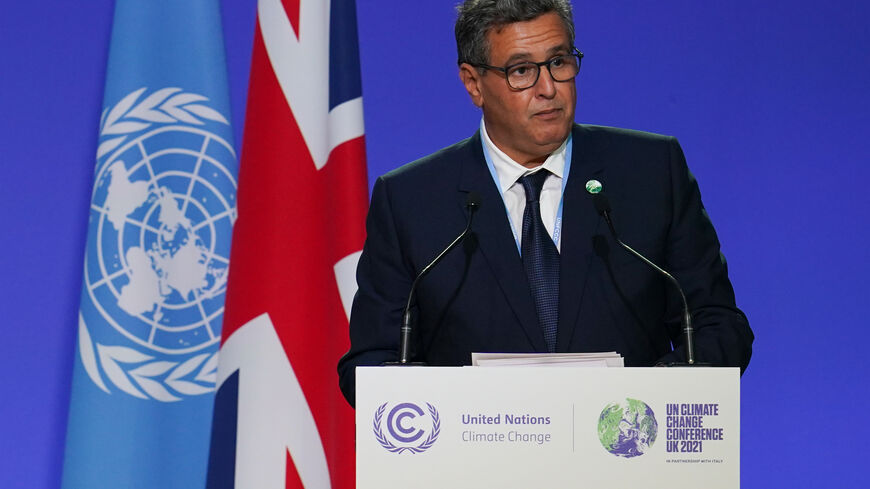British companies and politicians descended on Morocco this week to discuss business partnerships, trade ties and the Western Sahara dispute.
Around 30 UK companies are attending the 2023 Salon International de l'Agriculture au Maroc — an agriculture expo in the historic city of Meknes in the north of the country — where they expect to strike deals with Moroccan agribusinesses.
In recent years, trade ties between the two countries have been growing. A trade deal in 2019 was one of the first since the UK voted to leave the European Union in June 2016. Since then, the countries have been signing a spate of partnerships across multiple sectors, including education, transport and renewable energy.
Among the most significant is the Xlinks project, a 3,800-km undersea cable that will connect Morocco’s renewable energy-rich region of Guelmim Oued Noun with Britain, delivering up to 3.6 gigawatts of solar and wind energy for an average of 20+ hours a day. The cable will also pass Spain, Portugal and France. Once complete, the project is predicted to provide up to 8% of the UK’s electricity demand with renewable energy.
The war in Ukraine has also left Britain vulnerable to sky-high energy prices compared to other parts of Europe that have invested in nuclear energy. Alissa Pavia, associate director for the North Africa Program at the Atlantic Council, said, “The UK needs clean energy, and Morocco has vast natural solar, wind and hydropower, so it comes as no surprise that the two countries are seeking a partnership. The UK is keen to meet its net zero goals by 2050 and can only do so by quickening its independence from fossil fuels.”
Intissar Fakir, senior fellow and director of the North Africa and Sahel Program at the Middle East Institute, told Al-Monitor: “I think the volume of trade [between the two countries] has increased something like 50% over the past couple of years," mostly in aviation, automotive and renewable energy.
“For both countries, there's a lot of advantages to increasing that collaboration," she added. "In the post-Brexit situation, it makes sense for the UK to reach out to Morocco." And Morocco, she said, wants to diversify its economic partnerships beyond the EU.
Fakir believes that the key challenge for Morocco is fulfilling its green energy promises to European countries while also ensuring its domestic energy supply is also green. Indeed, Morocco has ambitious plans to generate 52% of its energy from renewable sources by 2030. But right now, it imports 90% of its energy needs, and much of it is powered by fossil fuels.
Fakir is also keeping an eye on what the UK partnership will mean for Morocco’s automotive sector, which is mainly dominated by European and American partners.
“I think Morocco has a lot of important needs that they could get from the UK, provided that the frameworks continue to work for both,” Fakir said. That could include Moroccan airlines getting key landing slots in key connector airports in the UK, she said, as well as engagement with Morocco's nascent aerospace industry.
Cooling relations with the EU over the Western Sahara
In a boost to ties between the UK and Morocco, the group Western Sahara Campaign UK lost a legal challenge to Britain’s post-Brexit trade deal over goods from the disputed territory. Since this ruling, Morocco “feels that there is a little bit more freedom in terms of doing business with the UK than there is in terms of doing business with the EU”, Fakir said.
But Morocco is angering many allies over its stance on the Western Sahara, including its long-time ally, France, which has been relatively ambiguous on the issue.
Morocco claims 80% of the contested territory and offered limited autonomy for the Algeria-backed Polisario movement, which controls the other 20% but wants an independence vote on the whole region. In September 2021, a European Union court ruled EU-Morocco trade deals covering certain products were invalid because they were agreed upon without the consent of the people of Western Sahara.
Adding to that, in February the European Parliament issued a resolution condemning Morocco over its continued incarceration of investigative journalists, a resolution which allegedly had strong support from French MEPs, Pavia said. In response, Morocco then terminated all official duties of its ambassador to France.
“Consequently, Morocco is seeking to diversify its trade partners, and the UK is an obvious choice, Pavia added. “Unlike France or Spain, the UK has no stakes involved when it comes to migration issues in the Mediterranean.”
Given that the UK is also no longer part of the EU, it no longer needs to abide by the European Parliament’s rulings over the Western Sahara.
Pavia added, “In the long term, if Morocco can secure a reliable trade partner with the UK, it will become less reliant on relations and trade deals with France," and will therefore have more leverage on, for example, the Western Sahara front.








